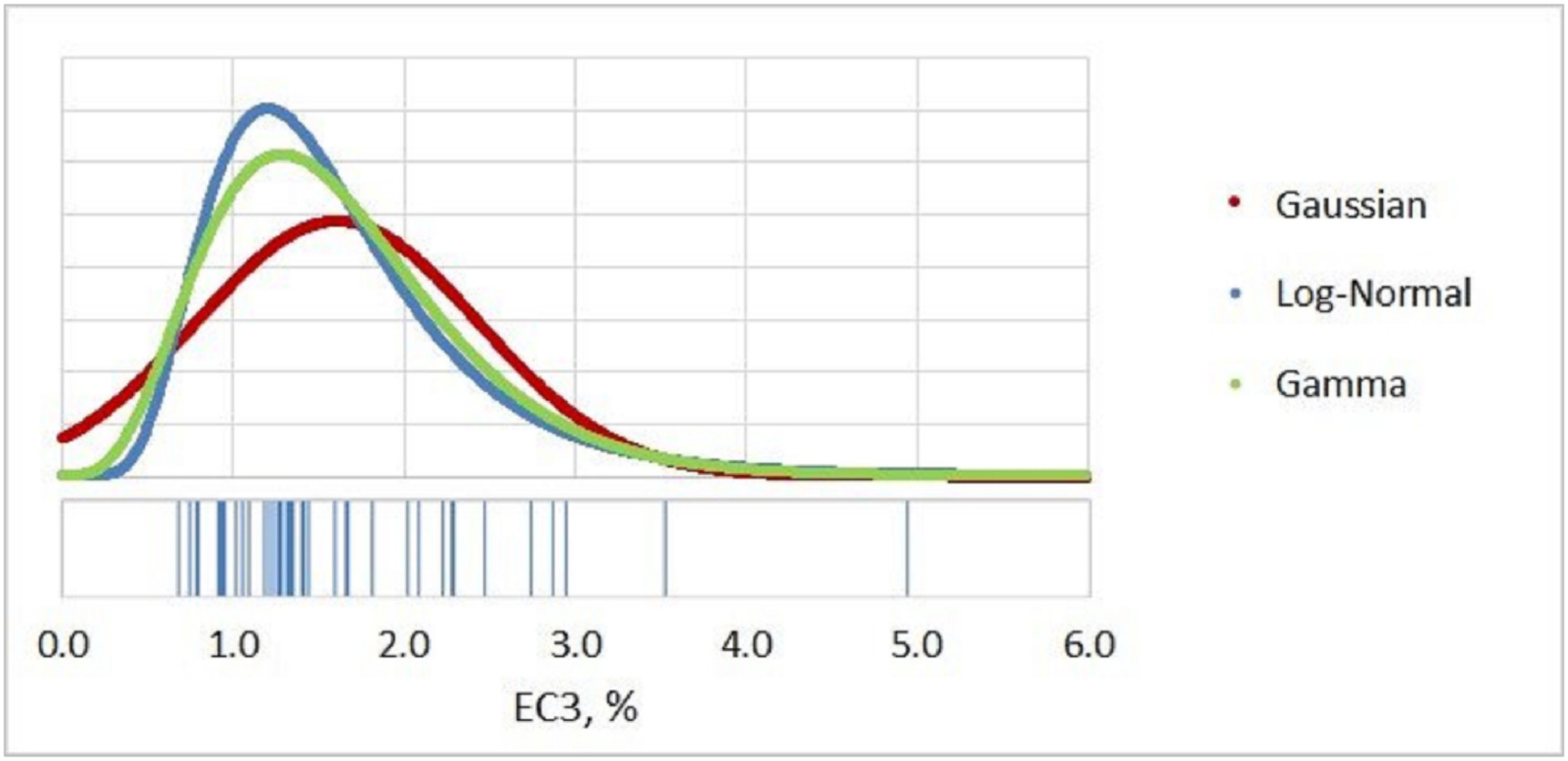Estimating uncertainty in LLNA EC3 data and its impact on regulatory classifications
Regulatory Toxicology and Pharmacology (2023)
The murine Local Lymph Node Assay (LLNA) is a test that produces numerical results (EC3 values) quantifying the sensitization potency of chemicals. These results are broadly used in toxicology and serve as a basis for various classifications, which determine subsequent regulatory decisions. The continuing interest in LLNA data and the diminished likelihood of new experimental EC3 data being generated sparked this investigation of uncertainty. Instead of using the Gaussian distribution as a default choice for assessing variability in a data set, two strictly positive distributions were proposed and their performance over the available experimental EC3 values was tested. In the application stage, how the uncertainty in EC3 values affects the possible classifications was analyzed, and the percentage of the chemicals receiving ambiguous classification was determined. It was shown that this percentage is high, which increases the risk of improper classification. Two approaches were suggested in regulatory practice to address the uncertainty in the EC3 data: the approaches based on "grey zones" and the classification distribution. If a chemical cannot be classified unambiguously, the latter appears to be an acceptable means to assess the level of sensitization potency of chemicals and helps provide better regulatory decisions.

